20 Hot Edge Computing Companies To Watch In 2020
CRN breaks down the 20 companies leading the edge computing innovation charge in 2020.

20 Edge Computing Companies You Need To Knwo
This year marks the beginning of the “data decade,” says Dell Technologies CEO Michael Dell. Businesses wanting to harness the power of their data from every device are looking at the edge to drive business outcomes.
By 2022, IDC estimates that 40 percent of enterprises will have doubled their IT asset spending in edge locations and nearby colocation facilities versus core data centers to services to local users. Analysts predict more than 40 percent of Internet of Things (IoT) data will need to be processed at the edge which is why vendors across the spectrum – from data center colocation and infrastructure providers to software and public cloud titans – are investing heavily in new products and services targeting the edge.
Here are the 20 companies who are winning the innovation battle at the edge that you need to watch in 2020.

Amazon Web Services
CEO: Andy Jassy
The public cloud titan provides a variety of services for edge devices such as AWS IoT Greengrass, which extends AWS to edge devices so they can act locally on the data while still using the cloud for management, analytics and storage. AWS’ open source FreeRTOS operating system for microcontrollers makes low-power edge devices easy to program, deploy, secure and manage. Additionally, the company’s CloudFront environment offers an edge-based content delivery infrastructure.
More broadly, the Seattle-based company’s IoT services portfolio enables businesses to hardness data generated by edge devices.
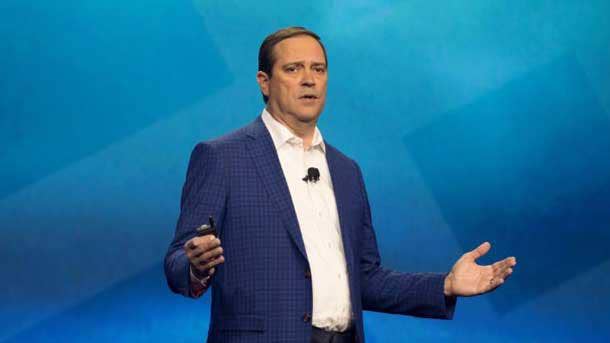
Cisco
CEO: Chuck Robbins
The San Jose, Calif.-based networking and collaboration giant offers a slew of edge products and services from purpose-built edge servers to IoT networking hardware. Cisco enables customers to deploy low latency edge services on its market leading infrastructure. The company’s multi-access edge computing portfolio – which includes Cisco’s Edge Intelligence orchestration software -- provides a path to 5G, new vertical applications, network efficiency and better latency.
Cisco’s Edge Series are all-in-one devices that consolidate computing, wired and wireless access, and full media connectivity to enable connected room deployments. Other edge products include Cisco’s Virtualized Infrastructure Manager and Network Services Orchestrator.

Clearblade
CEO: Eric Simone
ClearBlade’s Edge Platform provides a single software solution for rapid development of complex IoT environments. ClearBlade has built-in encryption, authentication and authorization of API access on the platform. The company’s edge computing software enables enterprises to rapidly engineer, secure and scale industrial IoT applications.
The Austin, Texas-based pure-play edge and IoT specialist says it provides the industry’s only IoT software platform that can deploy a common software stack across the board which allows developers to build in the cloud and push out to the edge.

Dell Technologies
CEO: Michael Dell
The $91 billion infrastructure giant is a leader of edge computing hardware and software as the worldwide market share leader in servers, storage and hyperconverged infrastructure. Key innovation over the years targeting the edge including its PowerEdge C-series of servers, new edge gateways and micro modular data centers.
Round Rock, Texas-based Dell also offers edge computing management and orchestration capabilities through its OpenManage Mobile.
One of Dell Technologies’ largest initiatives this year at the edge is creating new tools to help customers leverage their data at the edge to solve business outcomes.

EdgeConneX
CEO: Randy Brouckman
EdgeConneX provides purpose-built data center solutions for the edge including small cells, Point of Presence and customized centers in remote locations. The company’s EdgeConneX multi-access edge computing infrastructure is used to test 5G networks and power virtual reality platforms, while its EdgeOS is a purpose-built operating system for edge data centers.
The Austin, Texas-based has built more than 40 edge computing data centers across the world since 2013, ranging from 10kW to 100MW facilities.

Edge Intelligence
CEO: Kate Mitchell
Edge Intelligence provides a software platform that processes data in real-time to give customers insights into distributed data at the edge from servers, routers and threat intelligence platforms. The company’s flagship analytics architecture provides centralized management and access to geographically distributed data, automated software installation and orchestration.
The Boston-based company was co-founded in 2009 by Kate Mitchell, who has move than 30 years of leadership experience including being the former CEO of multi-terabyte data retention specialist CopperEye.

EdgeMicro
CEO: Mike Hagan
EdgeMicro specializes in providing edge colocation data centers tied with its proprietary Edge Traffic Exchange technology that facilitates local IP access between cellular radios, cached data and compute services directly at the tower. The Denver-based company’s turnkey edge data centers can be located at any fiber point such as in parking lots and roof-tops. EdgeMicro provides services around site location, engineering and design, installation, commissioning, maintenance and monitoring.In February, EdgeMicro entered into a customer agreement with Cloudfare that puts Cloudfare’s cloud services in more than 30 EdgeMicro centers.

Edgeworx
CEO: Kilton Hopkins
Edgeworx is laser focused on bringing Kubernetes to the IoT edge with ioFOG Engine which allows customers to run any software on any endpoint using open source technology. The ioFOG software is seamlessly integrated with Kubernetes to enable Kubernetes to orchestrate microservices all the way to the edge. EdgeWorx’s ioFOG Fog Services also provides a suite of capabilities to create self-organization software networks that run on top of any network.
The Santa Clara, Calif.-based company launched out of stealth mode in late 2018 backed by investor funding from the likes of Samsung Next and CloudScale Capital Partners.

Equinix
CEO: Charles Meyers
In a bold move to drive more edge capabilities, data center colocation kingpin Equinix acquired bare metal automation startup Packet to create new offerings to allows businesses to rapidly deploy digital infrastructure.
“This dovetails perfectly with Equinix's strategy for helping enterprises implement new digital architectures in a growing number of edge locations,” said Packet CEO Zachary Smith. “The incorporation of Packet into Equinix will accelerate the delivery of enhanced edge services to Equinix's growing customer base.”
Redwood City, Calif.-based Equinix is the world’s largest data center and colocation provider.
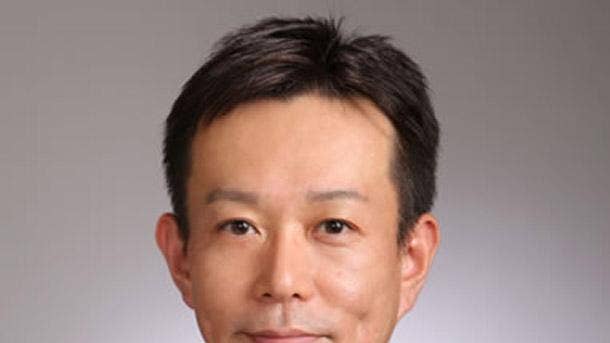
Hitachi Vantara
CEO: Toshiaki Tokunaga
Hitachi Vantara offers a slew of products for the edge from storage and converged infrastructure to video intelligence and operations management software. The company’s primary edge and IoT product is its Lumada platform that includes Lumada Edge Intelligence, Lumada Maintenance Insights Lumada Manufacturing Insights, and Lumada Video Insights.
Earlier this year, the Japanese conglomerate Hitachi completed the merger between Hitachi Vantara and Hitachi Consulting to combine the company’s consulting-led digital solutions and vertical expertise organization with Vantara’s focus on data center, data operations and digital transformation.
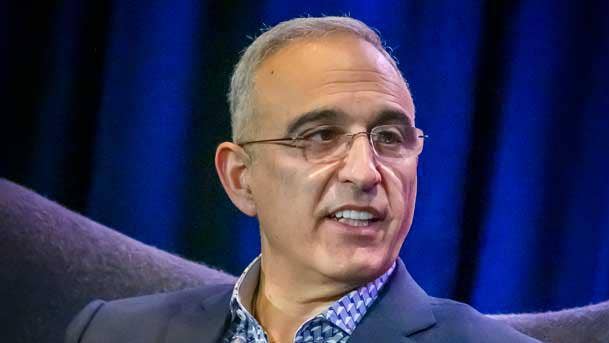
HPE
CEO: Antonio Neri
Hewlett Packard Enterprise is betting big on the edge with help from its networking subsidiary Aruba, who offers wired and wireless products that enable edge computing. HPE’s broad edge portfolio – which includes servers, IoT and storage – is highlighted by its HPE Edgeline Converged Edge System that converges operational technology with enterprise-class IT in a rugged system made for harsh edge environments.This month, HPE stepped up its edge to cloud security push with the acquisition of Scytale, maker of an open source platform that runs across on-premise, cloud and container based infrastructure.
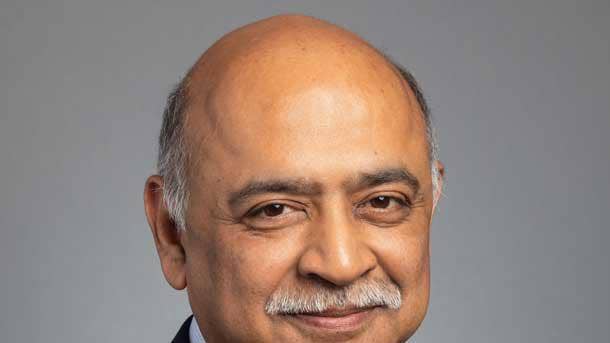
IBM
CEO: Arvind Krishna
IBM’s Edge Computing Manager provides autonomous management for edge computing where a single administrator can security manage and scale application environments across thousands of endpoint simultaneously. The IBM platform can run and manage workloads on any edge endpoint such as servers, gateways and devices. The Armonk, N.Y.-based company’s broad edge portfolio also includes IoT solutions for facilities management, asset management and systems engineering.
Tied with Red Hat’s OpenShift enterprise Kubernetes orchestration platform, IBM is bullish on new edge opportunities ahead in 2020.
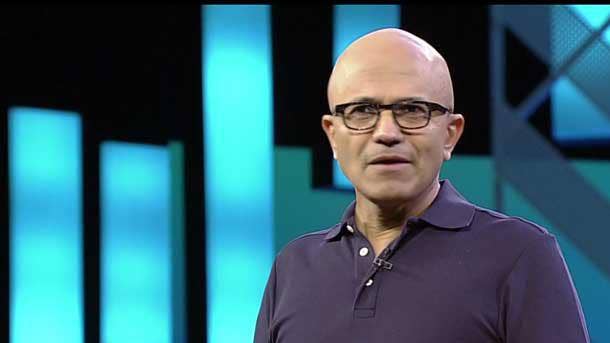
Microsoft
CEO: Satya Nadella
Microsoft Azure has launched several products and services to support edge computing in recent years including Azure IoT Edge which is used to provision and manage containers. Microsoft’s on-premises Azure Stack Edge physical network appliance runs containers to analyze, transform and filter data at the edge which also acts as a cloud storage gateway.
The Redmond, Wash.-based company also owns Azure IoT Central for IoT applications, Azure Sphere for IoT security, and its Windows IoT platform which includes developer tools deigned to run on edge devices.

Nutanix
CEO: Dheeraj Pandey
Nutanix is a hyperconverged infrastructure pioneer who has completely left the hardware business in favor of software and subscriptions. The company’s edge innovation has picked up steam over the past two years with products like Xi IoT to deliver artificial intelligent-driven processing at the edge with a zero-touch platform.
Nutanix’s cloud-agnostic IoT platform delivers local computing and machine learning to edge devices, with the ability to rapidly develop and deploy IoT apps at scale via flexible APIs and reusable data pipelines.

Oracle
CEO: Safra Catz
Oracle’s Tactical Edge Cloud Infrastructure is ruggedized compute and storage hardware based on the company’s cloud services architecture. The platform has a set of IoT applications available on a Software-as-a-Service basis as well as solutions targeting specific verticals. Oracle’s edge services include solutions for web application security, DDoS protection and domain name system (DNS).
The Redwood Shores, Calif.-based company is undertaking a massive data center expansion effort to open a new data center region every 23 days on average in 2020.

Saguna
CEO: Lior Fite
The pure-play edge specialist provides multi-access edge computing solutions highlighted by its flagship Saguna Edge Cloud that includes edge virtualization, open management and automation capabilities. Saguna’s solution aims to make it fast and simple to develop and deploy new edge applications which can be deployed within network function virtualization environments or off-the-shelf servers.
The Israel-based company’s focuses on the telecom and network service provider space by providing ultra-reliable, low-latency with customers including HPE and Dell.

SAP
Co-CEOs: Christian Klein and Jennifer Morgan
SAP Edge Services deploy powerful microservices at the edge to help customers gain insight, monitor real-time events and actions. SAP brings operational data together with business context from SAP ERP, SAP S/4HANA or SAP C/4HANA. SAP can analyze IoT data streams in real time, store IoT data locally and run edge computing processes close to IoT devices.
The Germany-based enterprise software superstar’s Edge Platform extends SAP’s cloud computing capabilities to the edge.

Scale Computing
CEO: Jeff Ready
Hyperconverged infrastructure specialist Scale Computing provides its HC3 architecture – which combines servers, storage and virtualization – alongside its HyperCore platform that automatically identifies, mitigates and corrects problems in the infrastructure. The Indianapolis, Ind. -based company recently unveiled breakthrough edge technology by putting its full HC3 platform into a small device RAM footprint that allows ultra-small Lenovo M90n Nano and Intel NUC products to run mission critical apps at the edge.
“The magic is that we have got the entire software stack from Scale running in those tiny devices, consuming less than one Gig(abyte) of memory,” said Scale Computing CEO Jeff Ready. “What the Scale software does is effectively turn those devices into full enterprise class, highly available servers.”

Zededa
CEO: Said Ouissal
Zededa provides centralized visibility, control and protection of the edge as a cloud-delivered service. The Santa Clara, Calif.-based startup aims to accelerate the adoption of IoT and artificial intelligence with edge virtualization software that makes it easy to deploy applications at the edge. Zededa’s Edge Quick Control tool includes one-click Microsoft Azure IoT edge enablement, zero-touch provisioning and full visibility into and control of all deployments.
Founded in 2016 by engineers and executives who previously worked at Arista Networks, Pivotal Software and Juniper Networks, Zededa raised $16 million last year in a Series A investment round.